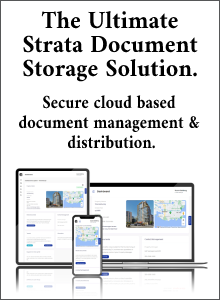
Electrical Planning Reports for BC Stratas
On December 6, 2023, Order in Council OIC 671-23 was enacted, mandating strata corporations to secure a electrical planning reports. This directive further introduces regulations elucidating the stipulations of this requirement.
The pertinent sections of the Strata Property Act (SPA) and Strata Property Regulation regarding electrical planning reports include:
- SPA section 94.1, which obligates strata corporations to acquire an electrical planning report, explicitly stating that this requirement cannot be waived or deferred.
- SPA sections 92(a)(iii) and 96(b)(i)(A)(IV) specify the financial responsibilities associated with procuring the report.
- Regulations 5.7 to 5.12 detail the procedural aspects of these requirements.
- SPA section 90.1(2)(b) is also critical, as it outlines the timing for obtaining a electrical planning reports. This timing is crucial as it affects when an owner can request approval from the strata for proposed modifications to common property, such as the installation of EV charging stations.
- The electrical planning report has been incorporated into Form B, signifying its significance in the strata documentation.
What is an electrical planning report?
Electrical planning reports serve as a critical resource for strata councils and property owners to gain a comprehensive understanding of their electrical infrastructure. It evaluates the current electrical capacity of buildings to meet future requirements.
Given the evolving energy landscape, such as the transition away from gas boilers in response to environmental policies, this report becomes indispensable. The CleanBC Roadmap to 2030 outlines a strategic commitment to ensuring that, post-2035, all newly sold and installed space and water-heating systems in British Columbia will achieve 100% efficiency.
An electrical planning report aids strata corporations in planning for a range of upgrades including cooling systems, heat pumps, electric vehicle charging stations, and the electrification of traditionally fueled building systems. By leveraging this tool, strata corporations can strategically plan for future infrastructure needs, thereby circumventing expensive electrical service upgrades.
Which stratas are required to obtain an electrical planning report?
Strata corporations comprising fewer than five strata lots are exempt from the requirement to procure an electrical planning report.
Conversely, the mandate to secure an electrical planning report applies to all other strata corporations, encompassing a diverse range of property types such as condominiums, townhouses, bare land stratas, residential complexes, commercial buildings, hotels, industrial facilities, and various other strata formats.
The obligation to obtain this report is unequivocal, with no provisions for waiver or deferment. This requirement is stipulated under section 94.1 of the Strata Property Act, further supported by regulations 5.8(3) and 5.9, underscoring the universal applicability of this prerequisite across the broad spectrum of strata corporations.
How often must a Strata Corporation obtain electrical planning reports?
The frequency with which strata corporations are required to obtain an electrical planning report primarily involves a single acquisition for most entities. However, strata developments constructed in multiple phases may necessitate additional reports contingent upon the expansion of strata lots. The requirement for a subsequent report upon the introduction of each new phase to the Land Title Office is determined by the number of units incorporated within that phase. For comprehensive details regarding this requirement, refer to Regulation 5.9.
When must a strata corporation in BC obtain eletrical planning reports by?
The deadline for existing strata corporations (those with strata plans filed on or before December 31, 2023) to secure an electrical planning report is determined by the location of the strata, with deadlines set for either December 31, 2026, or December 31, 2028. Specific guidance can be found in Regulations 5.7 and 5.8.
Strata corporations situated within the Capital Regional District, Fraser Valley Regional District, and the Metro Vancouver Regional District are required to obtain their electrical planning reports by December 31, 2026. For strata corporations located on islands within these districts that are only accessible by air or boat, such as the Gulf Islands, the deadline extends to December 31, 2028.
For strata corporations in all other regions of British Columbia, the deadline is December 31, 2028.
New strata corporations (with strata plans filed after December 31, 2023) have a deadline of 5 years from the date their strata plan is registered at the Land Title Office. This 5-year timeframe also generally applies to new phased strata developments. Further information on these requirements can be referenced in Regulation 5.9
What information is in the electrical report?
The electrical planning report, as mandated by Regulation 5.11, must encompass a comprehensive array of information to ensure a thorough analysis of the strata corporation’s electrical system. The required contents of the report include:
- The date on which the electrical planning report was prepared.
- The identity of the individual or entity from whom the report was obtained, accompanied by:
- A delineation of their professional qualifications.
- Details regarding any errors and omissions insurance held.
- The nature of their relationship with the strata corporation.
- An assessment of the current electrical capacity of the strata corporation’s system.
- An inventory of the existing demands on the electrical system, explicitly including:
- Existing electric vehicle (EV) charging infrastructure.
- Systems for heating, cooling, ventilation, and lighting.
- Analysis of the current peak electrical demand and available spare capacity.
- For systems not currently electric, an estimate of the electrical capacity required for potential electrification, especially for heating, cooling, and ventilation systems.
- Projections of future electrical demands, including capacity needs for:
- Anticipated modifications or installations of heating, cooling, ventilation, and other systems.
- Future EV charging infrastructure.
- Recommendations for pragmatic measures to reduce electrical demand.
- Suggestions for feasible upgrades or modifications to enhance system capacity.
- Projections of additional electrical capacity achievable through recommended demand reduction strategies or system enhancements.
For the majority of strata properties, including bare land stratas, the utility provides power to a central point for distribution to individual units. In exceptional instances where electricity is supplied directly to each strata lot by the utility, the report need only detail the qualifications of the person preparing the report and confirm the independent electricity supply to each lot, as per Regulation 5.11(3).
Who provides the electrical planning reports?
Section 94.1 of the Strata Property Act mandates that strata corporations procure an electrical planning report from an individual possessing the requisite qualifications, as delineated in Regulation 5.10.
The eligibility to author such a report is contingent upon the classification of buildings within the strata property, as defined under the British Columbia Building Code.
This code distinguishes between two primary types of buildings: “simple buildings” (Part 9 buildings) and “complex buildings” (Part 3 buildings). Buildings exceeding three stories in height or 600 square meters in footprint are categorized as complex buildings (Part 3 buildings). Should there be any uncertainty regarding the classification of a building, it is advisable to consult with the municipal building department or development services department for clarification.
For stratas encompassing Part 9 buildings, the electrical planning report must be procured from one of the following professionals: an electrical engineer, an applied science technologist, or a licensed electrician. Conversely, stratas that include buildings not falling under the Part 9 category are required to obtain their electrical planning report from either an electrical engineer or an applied science technologist.
Who pays for the electrical report?
The financing of an electrical planning report for a strata corporation can be sourced from either the operating fund or the contingency reserve fund (CRF), akin to the procedure followed for a depreciation report.
To allocate funds from the operating fund, the expenditure needs to be incorporated into the annual budget and subsequently approved by a majority vote at the annual general meeting, as outlined in SPA section 92(a)(iii).
Alternatively, to utilize the CRF for this purpose, a resolution must be adopted by a majority vote during either an annual or a special general meeting, in accordance with SPA section 96(b)(i)(A)(IV).
How long must the Strata Corporation keep the electrical planning reports?
Section 35 of the Strata Property Act enumerates the records that must be maintained by a strata corporation, and it has been updated to include the requirement for strata corporations to preserve any electrical planning reports they obtain.
The Information Certificate (Form B) now includes a revised section (p), inquiring whether the strata corporation has procured any electrical planning reports pursuant to section 94.1 of the Strata Property Act. Should the response be affirmative, it is mandatory to attach copies of all obtained electrical planning reports. This requirement is detailed in the updated Form B – Information Certificate. Similar to other attachments to Form B, the strata corporation is permitted to levy a fee of up to $0.25 per page for these documents.
Not Legal Advice - The material provided on the StrataPress website is for general information purposes only. It is not intended to provide legal advice or opinions of any kind and may not be used for professional or commercial purposes. No one should act, or refrain from acting, based solely upon the materials provided on this website, any hypertext links or other general information without first seeking appropriate legal or other professional advice. These materials may have no evidentiary value and should be checked against official sources before they are used for professional or commercial purposes. Your use of these materials is at your own risk.






